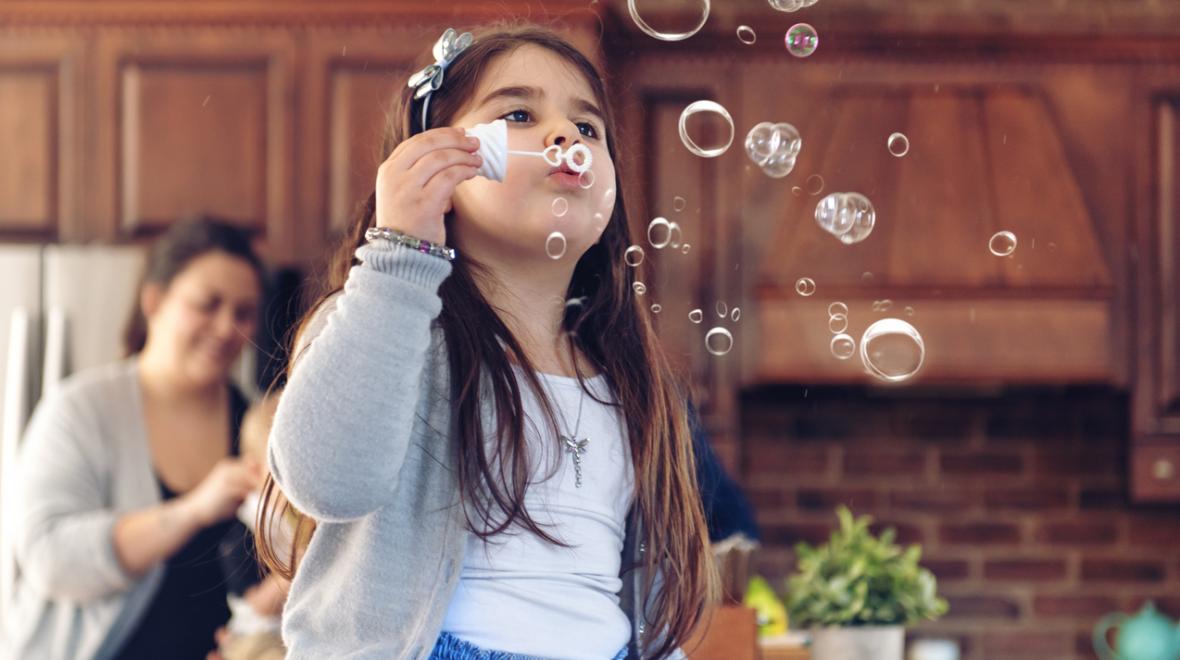A sneak peek of ParentMap’s upcoming event covering autism advocacy, pediatric anxiety, and ADHD
Sometimes this parenting gig calls for a little extra research. At ParentMap’s Every Child Summit, taking place the evening of Wednesday, Oct. 17, caregivers will learn more about supporting kids who have special needs. Three experts will give mini-lectures covering parenting kids with autism, anxiety and ADHD. Below, the event’s speakers give us a sneak peek into their talks.
Autism Advocacy with Arzu Forough, President/CEO of Washington Autism Alliance & Advocacy
Q. What are some of the early signs of Autism?
A. Typically, parents are able to socially relate to our children. Our babies gaze at us and they bring our attention to things that are important to them. Our babies seek comfort in us and they are interested in other babies socially. With babies who have autism that social relatedness is a little bit different.
Even if the child has higher than average intelligence, they may not socially relate to parents and other babies. They often struggle to process sensory input, too. The tag on the back of a shirt might make them feel like the world is coming to an end. You may wonder why your child is reacting so severely to these little things. To the outside world, this child may come across as a behavioral challenge and the parent is often regarded as someone who has poor parenting skills. But this is a child who’s trying to do the best they can in a very confusing world.
If your child does have autism, you’ll go through different stages of emotional responses and acceptance. Parents can become resilient by getting help from the get-go and seek support from organizations like the Washington Autism Alliance & Advocacy (WAAA).
Pediatric Anxiety with Dr. Ashley Moss, Postdoctoral Fellow in Pediatric Psychology at Seattle Children’s Hospital
Q. If you think your child might have anxiety, what are good first steps to take to find help?
A. The first step for figuring out if your child may be experiencing anxiety is a visit to your pediatrician. All kids experience some level of anxiety whether they experience fear of monsters, fear of the dark or even fear of separating from their parents and often those worries are not always long-lasting. If your child’s anxiety is distressing to your child or it’s impacting their daily functioning, it’s a good idea to seek help. Your pediatrician can rule out physical issues and give referrals for mental health specialists who can evaluate and help your child.
There are a number of options for treating anxiety. There’s evidence-based cognitive behavioral therapy (CBT), as well as a number of options for medication management and therapeutic approaches that might involve family therapy. I think it’s important to remember that we’re not trying to get rid of children’s anxiety; we’re teaching kids how to manage those symptoms more effectively and increase functioning.
ADHD with Erin Schoenfelder Gonzalez, Ph.D., Attending Psychologist at Seattle Children’s Hospital
Q. Why do parents need more guidance when parenting a child with ADHD?
A. Most parents of a child with ADHD are using strategies that should and will work with most kids. Yet they have a child who processes information differently. Therefore, they need some tweaks to their strategies to help their child make behavioral changes. Parents who have children with ADHD need advanced parenting strategies.
Q. What’s one key strategy parents can use with their kids who have ADHD?
A. Kids with ADHD get a lot of negative feedback from a lot of different directions: from coaches, teachers, other parents and peers who might not know that a kid has ADHD or understand how ADHD affects behavior. It’s been called the invisible disability because it’s hard for people to understand why kids with ADHD are struggling and that they need more reminders and support. Children and teens with ADHD need a lot more positive feedback to thrive and learn and feel good about themselves. In our clinic, I talk with parents about the ways they can tip the balance of feedback toward the positive.
YOU are your child’s best advocateJoin ParentMap on October 17 in Seattle and get the support you need to help your child thrive. Our Every Child Summit includes three expert lectures plus a free resource fair to support families of neurodiverse learners. Learn more and get your tickets here. |
This article was originally posted
BY NANCY SCHATZ ALTON
on ParentMap
http://www.parentmap.com/article/meet-experts-our-every-child-summit



